The need for various skills in the workplace is constantly shifting. Due to changing technologies and the rise of the virtual workplace, soft skills that support working remotely have grown in importance. In fact, the introduction of new technologies like artificial intelligence (AI) has catalyzed the shift in demand for specific skills, requiring employees to deepen their existing skill sets or acquire new ones. Soft skills are personal attributes and non-technical skills that describe how people work and interact with others.
With this in mind, here at Business Name Generator we surveyed over 1,000 U.S. employees to investigate how the integration of new technologies will impact the companies they work at, the skills employees and businesses value, and how this is likely to change in the future.
Key takeaways
- 48% of companies are looking to expand on existing skill sets.
- 84% of employees and managers believe new employees must possess soft skills and demonstrate this in the hiring process.
- 71% of employees believe soft skills will be more or just as important in the future.
- The most valuable soft skill for recruits is communication.
- The most valuable skill for advancing in your career is leadership.
Businesses Continue to Expand their Workforces
Despite difficult economic times over the past few years, the study reveals that 70% of companies are actively looking to hire new employees. Companies demonstrated different reasons for growing their workforces, but over half of companies seek to increase their workforce to prepare for future growth (56%).
Furthermore, 34% of businesses are looking to bring digital skills into the team, and digital skills training is one of the most popular training offerings in U.S. companies, with over a third providing this. Over one in five companies also reported offering training in competencies such as AI proficiency and coding, as almost eight in ten companies have plans to use AI technology at present or in the future.
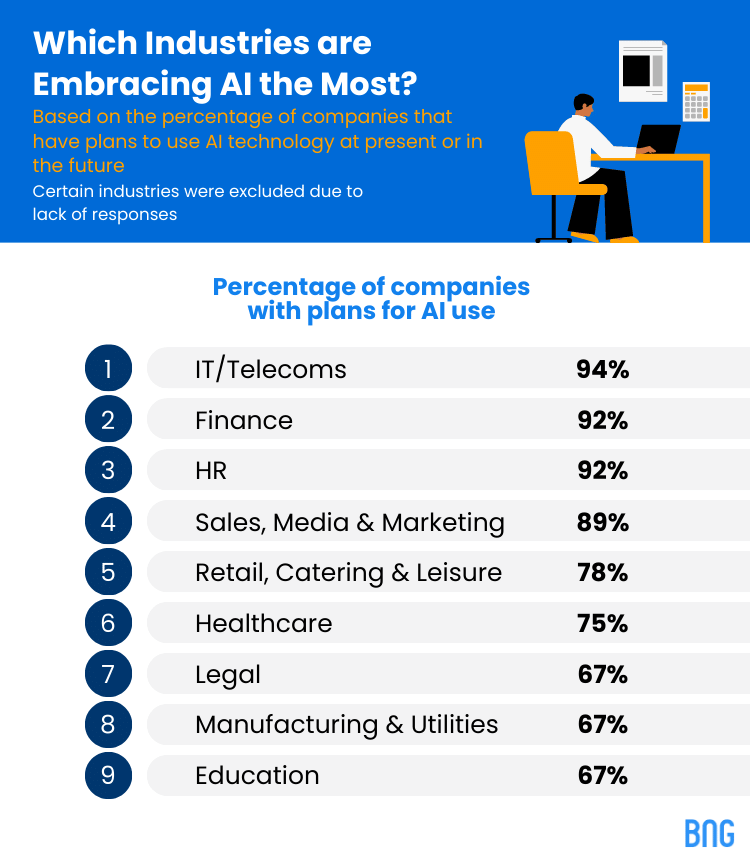
Growing companies will be looking to recruit staff with in-demand skills to ensure they address their changing business needs. With advances in AI, companies are rushing to adopt this technology and incorporate this into their business strategy, increasing the need for skills in this area. Some companies are looking to improve productivity or efficiency, whilst others simply hope to reduce costs.
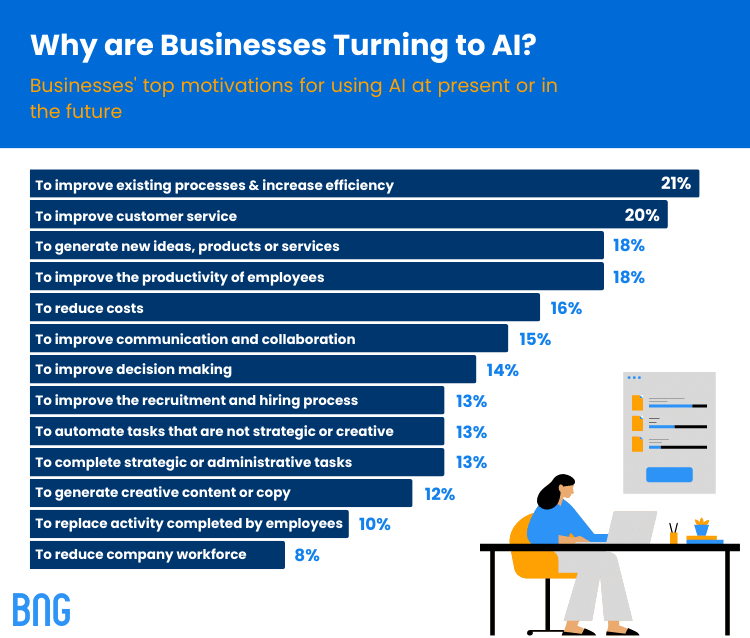
The Importance of Workplace Skills
It’s important for employees to have a varied skill set and not just focus on the digital. More specifically, 84% of surveyed employees and managers believe new employees must possess soft skills and demonstrate this in the hiring process. This figure was the highest in companies with over 500 employees, with 90% saying that soft skills were the most important.
The study also found that 80% of women agreed that soft skills are valuable, whereas 90% of men found soft skills valuable in the workplace.
The perceived importance of soft skills also varied with educational level. Those with Bachelor’s degrees (91%), Master’s degrees (91%) and Doctorates (95%) found soft skills more important than those with a high school (74%) or college diploma (78%). The consensus also varied across industries, with industries like IT, finance and education seeing a much greater need for soft skills than travel and hospitality.
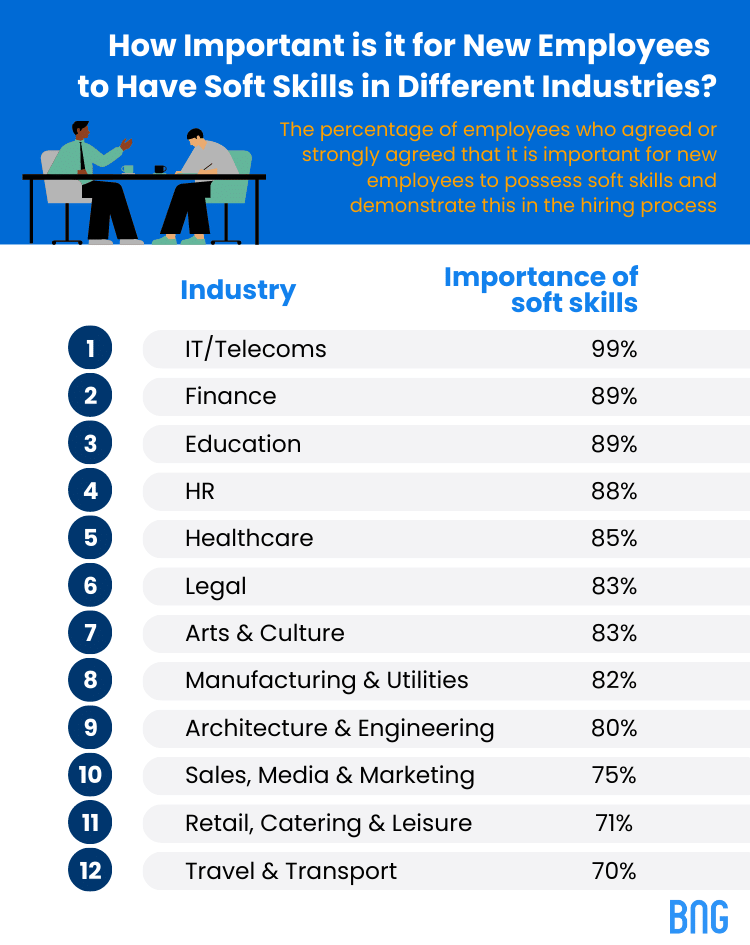
How Does the Importance of Soft Skills Vary in the U.S.?
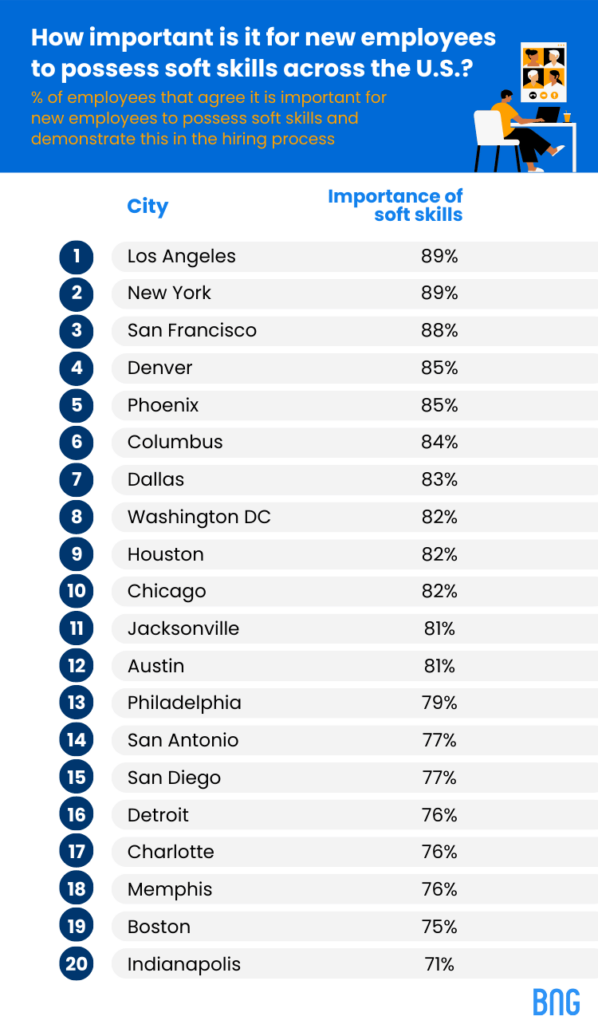
The most common reasons for perceiving soft skills as important are that they can make or break a hiring decision (22%). They are also essential for career development (18%) and can help differentiate similar candidates (17%).
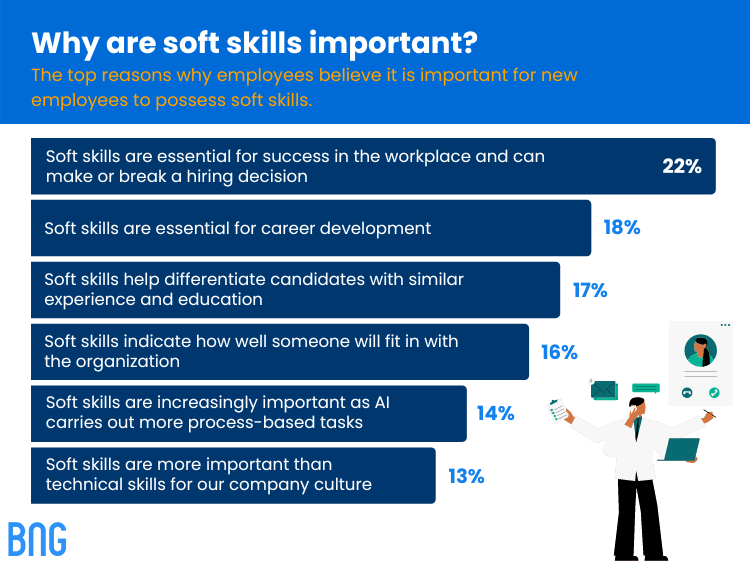
How is Technology Changing Team Needs?
With almost two in five Americans able to work from home, according to Statista data on U.S. workers offered remote work options, new technologies are coming into play to support this way of working. Increased automation and emerging technologies are making digital literacy more important than ever. In fact, a third of companies said they are looking to hire to bring digital skills into the team.
When asked how important they think soft skills will be in the future of work, 71% of respondents said it would be just as or more important. Conversely, 3% believe that AI will replace the need for soft skills in the workplace, although they are vastly outnumbered.
The Most Important Skills for New Recruits
We asked employees which core soft skills they deemed the most important for a recruit joining the company. Almost a quarter of respondents regarded communication as the most important, followed by problem-solving (21%) and time management (19%).
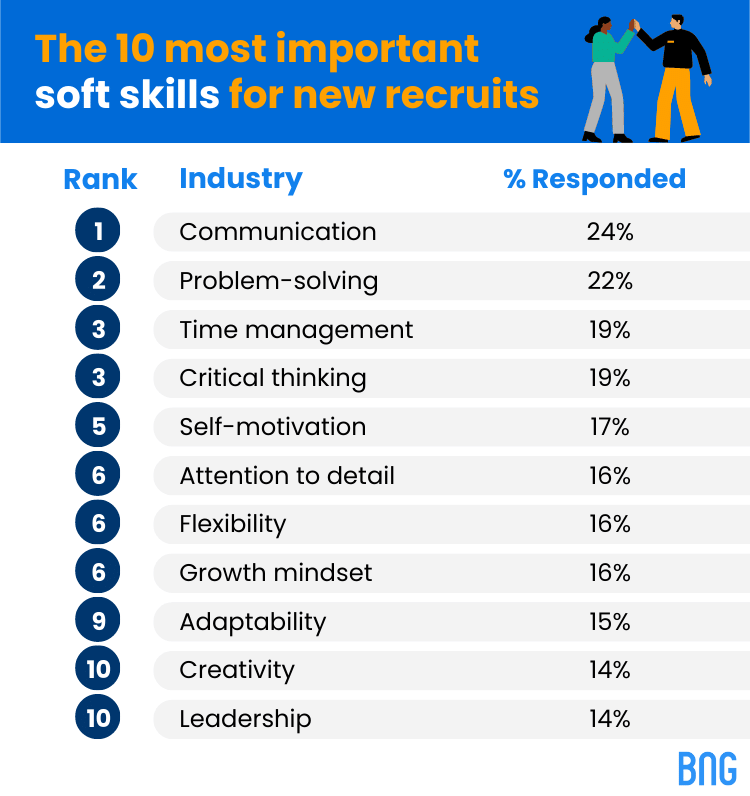
However, when looking at C-level executives and senior management, they thought creativity was the most essential skill, at 23% and 26%, respectively. Only 16% of C-suite executives thought communication was one of the most important skills, with seven other skills ranking higher. Only 5% of entry-level employees thought creativity was an important soft skill, so there could be missed potential to upskill in this area and land an entry-level role.
Men’s and women’s perception of skills varied slightly. Female employees deemed communication to be the most important soft skill for new recruits (26.1%), followed by problem-solving (21.5%) and time management (19.8%). Male employees, on the other hand, ranked problem-solving first (21.5%), followed by communication (21.2%) and critical thinking (19.8%).
We asked employees and managers from 20 major U.S. cities what they thought were the most important soft skills for a new recruit to possess. Here are the skills that came out on top in each city:
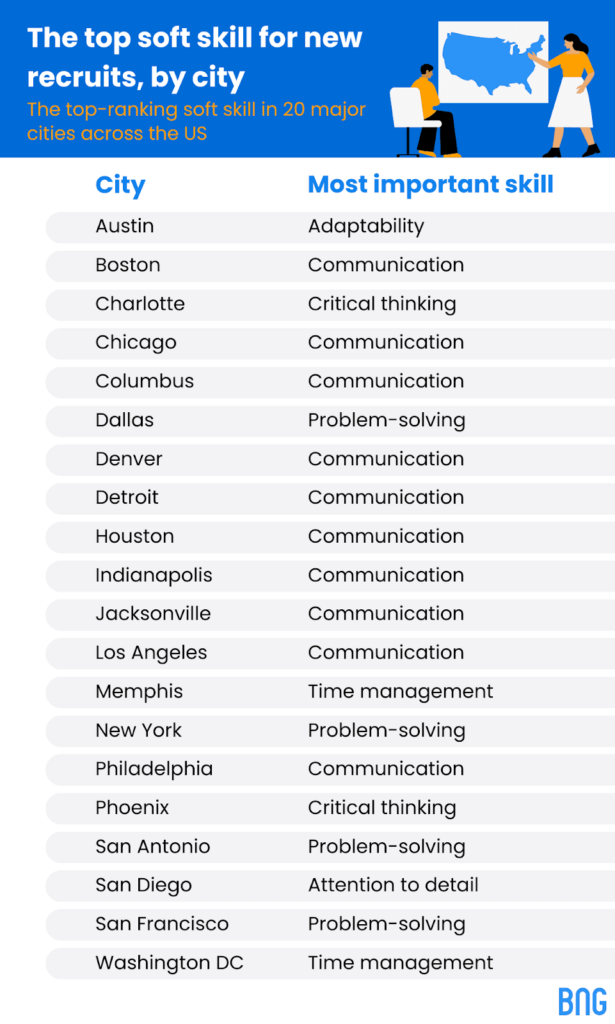
Important Skills For Career Advancement
As employees advance up the career ladder, the demand for certain skills changes. The skill most respondents identified as essential for an existing employee to demonstrate to advance in their career was leadership (21%). However, only 14% of respondents thought this skill was very important for new joiners. Therefore, the most important skills also varied significantly across sectors.
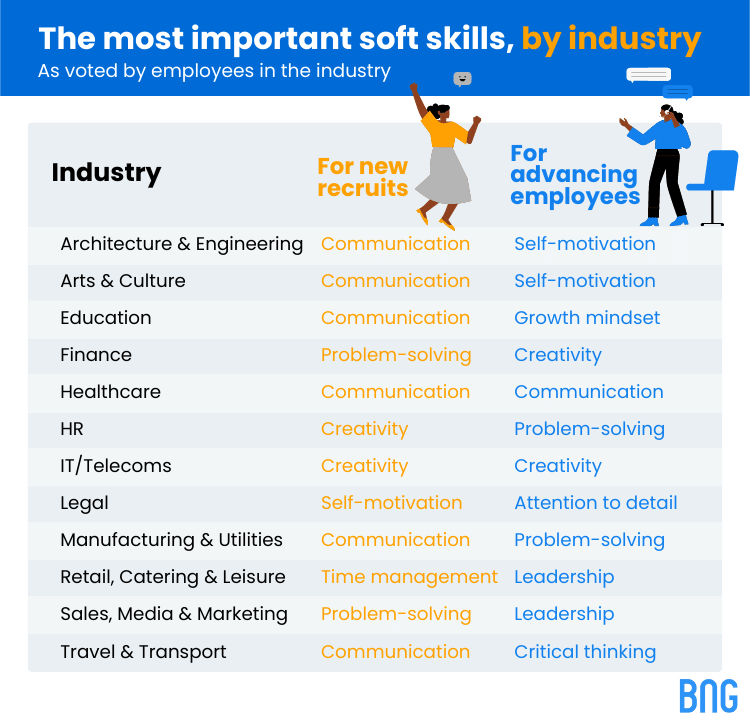
Where Are Employers Offering Training?
The most common soft skill training opportunities were for communication (35%) and problem-solving (35%), as these were identified across the board as vital soft skills for an employee to possess. However, 7% of employees across the U.S. did not receive any soft skills training at all in the past 12 months. This increased to 13% in small companies with under 50 employees.
The importance of required skills varied across companies of different sizes. For example, fostering a growth mindset was promoted almost twice as much in companies with over 500 staff (31%) compared to those with under 50 (16%).
When analyzing male and female employees, 37% of men received training on creativity, compared with 21% of women. The most common training received by women was communication (35%), although similar levels of communication training were seen among men (36%).
It is not only an employer’s responsibility to support the development of employees’ skills. The onus also lies with the individual and their educational establishment. However, 14% of respondents thought that the education system does not prepare entry-level employees with the necessary skills to succeed, and less than half were confident that the college system was providing all of the required employment skills.
Key Points
Despite changing times and an evolving work landscape, the importance of soft skills perseveres. Certain practical skills are declining in relevance, making space for employees to develop their soft skills.
Advancements in AI and other technologies are one of the driving forces behind changing demand for skills, and the findings reveal that employees anticipate this to increase the need for soft skills, such as empathy, critical thinking, and emotional intelligence, which AI is currently unable to match.
Of the core soft skills, communication has been identified as paramount – not only for new hires but also as a vital element for career progression. Leadership has also emerged as a core skill for career advancement and success.
Overall, the study underscores the place of soft skills in the workplace and the need for continued skill development strategies, both in the workplace and the education system.
Methodology:
From July 26 to 31, 2023, Business Name Generator surveyed 1,015 U.S. employees across 12 industries, to find out their thoughts on soft skills in the workplace, and the training being provided to them. The survey was overseen by the Censuswide research team.